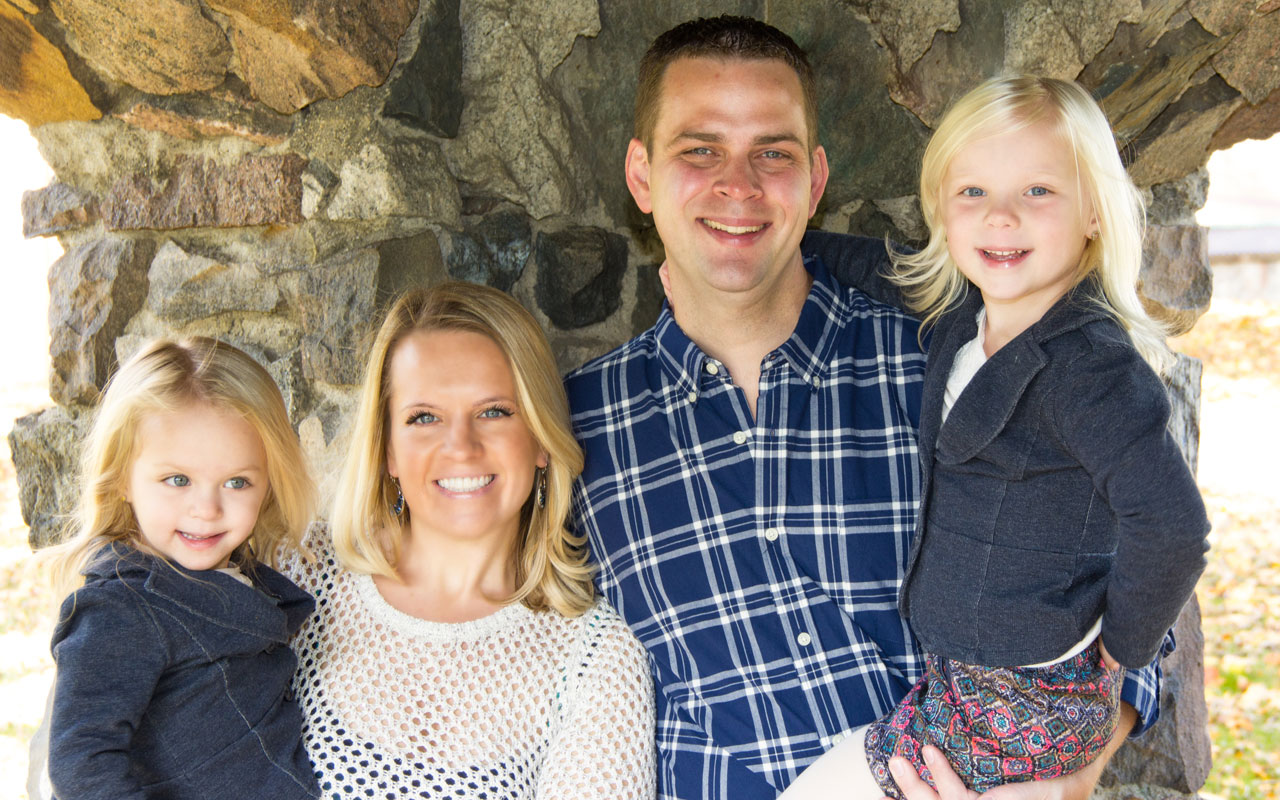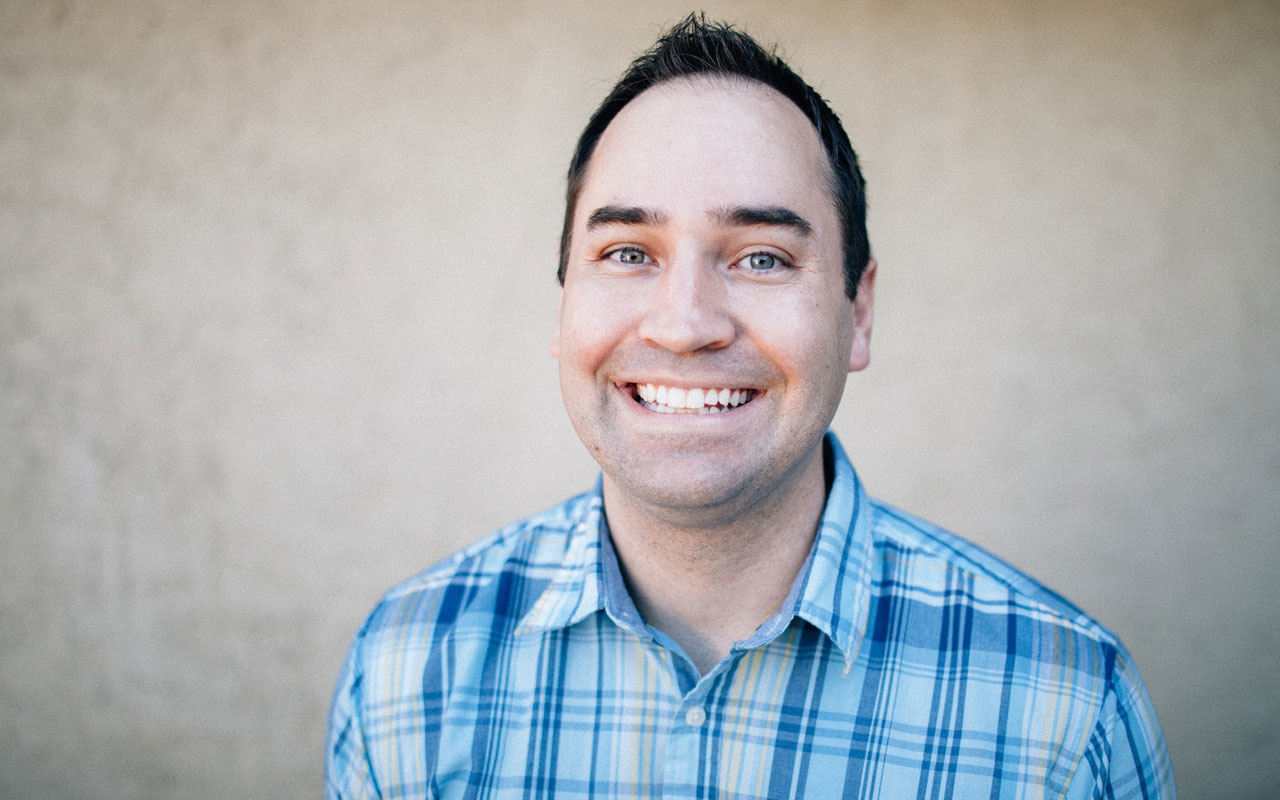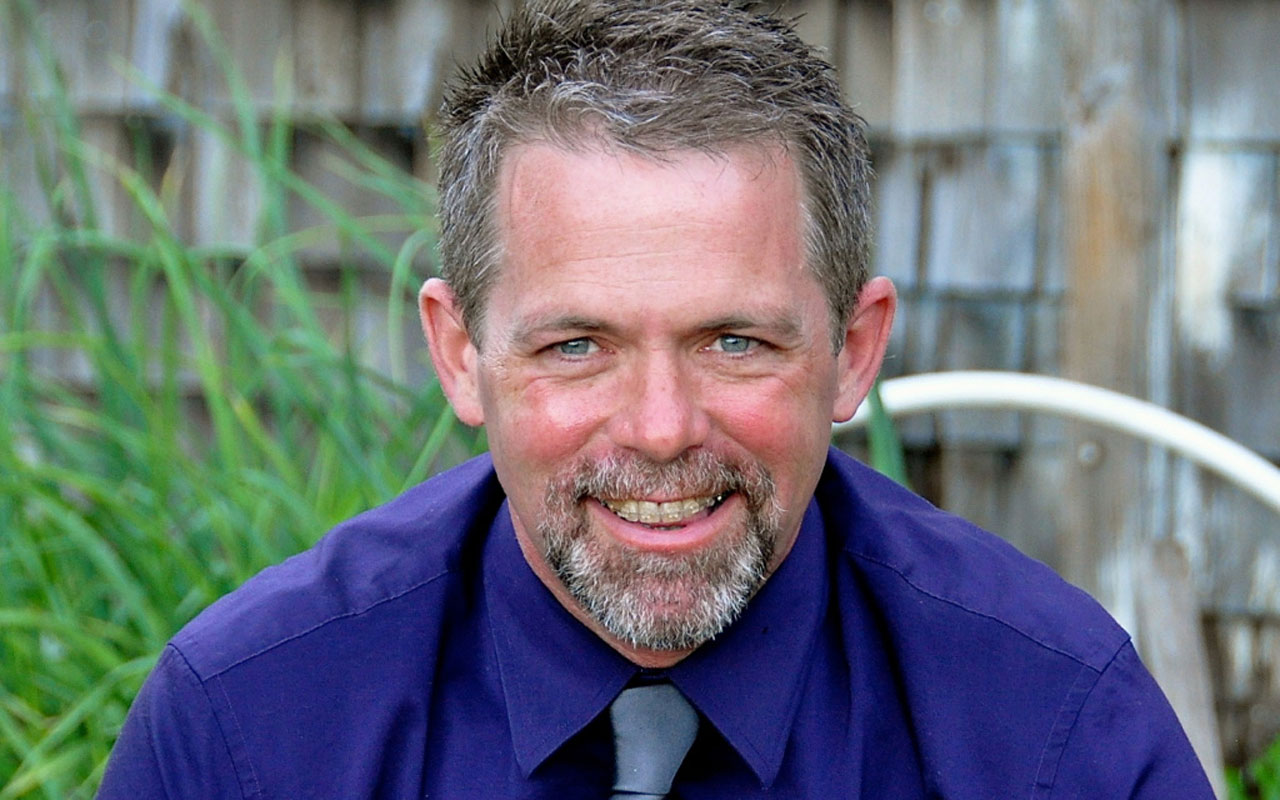Proven Tactics to Overcome Big Debts
Chances are you have debt -- and lots of it.


Profit and prosper with the best of Kiplinger's advice on investing, taxes, retirement, personal finance and much more. Delivered daily. Enter your email in the box and click Sign Me Up.
You are now subscribed
Your newsletter sign-up was successful
Want to add more newsletters?

Delivered daily
Kiplinger Today
Profit and prosper with the best of Kiplinger's advice on investing, taxes, retirement, personal finance and much more delivered daily. Smart money moves start here.

Sent five days a week
Kiplinger A Step Ahead
Get practical help to make better financial decisions in your everyday life, from spending to savings on top deals.

Delivered daily
Kiplinger Closing Bell
Get today's biggest financial and investing headlines delivered to your inbox every day the U.S. stock market is open.

Sent twice a week
Kiplinger Adviser Intel
Financial pros across the country share best practices and fresh tactics to preserve and grow your wealth.

Delivered weekly
Kiplinger Tax Tips
Trim your federal and state tax bills with practical tax-planning and tax-cutting strategies.

Sent twice a week
Kiplinger Retirement Tips
Your twice-a-week guide to planning and enjoying a financially secure and richly rewarding retirement

Sent bimonthly.
Kiplinger Adviser Angle
Insights for advisers, wealth managers and other financial professionals.

Sent twice a week
Kiplinger Investing Weekly
Your twice-a-week roundup of promising stocks, funds, companies and industries you should consider, ones you should avoid, and why.

Sent weekly for six weeks
Kiplinger Invest for Retirement
Your step-by-step six-part series on how to invest for retirement, from devising a successful strategy to exactly which investments to choose.
Chances are you have debt -- and lots of it. The average amount owed per consumer is $17,205, according to the Federal Reserve Bank of Kansas City’s most recent consumer credit report. That doesn’t even include real-estate loans -- just credit-card balances, auto loans, student loans and other personal loans.
What’s your strategy for paying it down? Sometimes in the fight against debt, the money’s actually there: It’s simply a matter of crafting a budget, reining in your spending and funneling more of your income to pay down the debts. Other people need to get creative -- and work even harder -- to bring in extra money to tackle their debt.
Read on for inspiration from seven people who paid off as much as $80,000 in consumer debt in three years or less. Hopefully, some or all of their approaches will help you pay down what you owe.

Avoid the Minimum-Payment Trap
Names: Lance and Victoria Cothern
- Debt: $80,000 paid off in less than three years
Lance Cothern was fortunate to graduate from college without any student loans. But his future wife, Victoria, who was then his girlfriend, graduated in 2011 with more than $80,000 in student-loan debt, including variable-rate private student loans. At first, Victoria wasn't even aware of how much total debt she had -- and, like many young adults, might have been inclined to make only the minimum monthly payments due.
An accountant, Lance sought to explain to Victoria the value of paying off the debt as soon as possible. So he searched the Web and found a downloadable spreadsheet that showed the true cost of making only minimum payments – in Victoria’s case, $700 a month. If they had paid only the minimum, it would have taken nearly 20 years to pay off her student loans, and they would’ve paid more than $40,000 in interest along the way, he says.
Convinced, Victoria cut discretionary spending from her budget and put the rest of her take-home pay as a nurse toward her debt each month. She started tackling the highest-rate loan, which had the highest balance, first to pay less in interest over time. To generate extra cash, the couple also sold what they didn’t need, Victoria worked extra shifts, and Lance started blogging -- all of which helped them wipe out her student-loan debt by March 2014.
You can read more about how they tackled their debt in Lance’s blog, Money Manifesto.

Cut Spending
- Names: Holly and Greg Johnson
- Debt: $51,000 paid off in two years
In 2010, the Johnsons both were working and making a nice living, but somehow their dual incomes weren’t enabling the couple to save. They had about $10,000 in credit card debt, $11,000 in student-loan debt and $30,000 in automobile debt. And they were spending almost all of what they earned each month.
They started tracking their expenses because they had no idea where all of their money was going each month. They found that they were shelling out at least $1,000 a month on food, so they cut that spending in half by planning better and eliminating meals out. They also ditched their cable TV subscription and made other cuts to free up $1,000 a month, all of which was applied to the couple’s lingering debt. “It’s miraculous what can happen when you pay attention to what you’re spending,” says Holly.
About a year into their debt-repayment efforts, Holly started earning extra income from freelance writing and from her blog, Club Thrifty, which helped them wipe out the entire $51,000 they owed in two years. Aside from their mortgage, the couple is now debt-free and saving for retirement.

Get a Side Job(s)
Name: Michelle Schroeder-Gardner
- Debt: $40,000 paid off in seven months
By the time Michelle Schroeder-Gardner graduated with a master’s degree in 2012, she had racked up $40,000 of student-loan debt. When the bills started rolling in, she realized that she didn’t want to be saddled with student-loan payments for a decade or more. No, she had a far more ambitious goal: Eliminate the debt in only six months.
In addition to working as a financial analyst at a small investment banking firm, Schroeder-Gardner found other ways to make money. She earned cash by taking surveys, getting mystery shopping gigs and selling stuff on eBay. She also launched a blog, Making Sense of Cents, which generated some money from ads. But the real money came when she got offers to write for and help manage other blogs. “I was working 100-hour weeks, but it was worth it,” she says. She increased her payments from about $3,000 a month to $8,000 or $9,000 a month with her side jobs. Her final payment of $10,000 helped her wipe out her loans in seven months. Not quite the six months she had planned, but close enough.

Sell What You Don’t Need
Names: Deacon and Kim Hayes
- Debt: $52,000 paid off in 18 months
Within a month of getting married in 2008, Deacon Hayes and his wife, Kim, combined their finances and realized how much debt they had: $7,000 in credit card debt, $27,000 in student loans and an $18,000 car loan. “It was like, ‘Holy cow -- 52 grand,’” Deacon says. “We were starting out with a negative net worth.”
Their repayment plan included tracking everything they spent and selling anything they didn’t need. They went through cabinets, drawers, bookshelves and closets to identify what they hadn’t used during the previous year. Kim sold designer clothes and purses on eBay. Deacon sold a Nintendo Wii and college textbooks. They had a big yard sale to unload everything that was collecting dust. Then Deacon sold the new car he had financed with an $18,000 loan, sold his wife’s car for $6,000 and bought two used cars with the proceeds from the sale of her car. “We knew for every item sold, it was one step closer to being debt free,” he says.
The couple also slashed their monthly costs by eliminating expenses such as cable TV, gym memberships, restaurant meals and massage therapy. And Deacon got a second job delivering pizzas to earn extra cash. Within 18 months, they paid off all of their debt. You can read more about how they did it on his blog, Well Kept Wallet.

Get Roommates
- Name: Zina Kumok
- Debt: $28,000 paid off in three years
Zina Kumok says she never worried about her student loans while she was in college because all her friends had them, too. But after graduation in 2011, with her first job at a daily newspaper paying just $28,000, it sunk in just how hard it would be to pay off her loans. Her monthly loan payments totaled $350, but her take-home pay was just $1,750. “I had read about budgeting in school but was forced to actually do it after graduating,” Kumok says.
She couldn’t get a second job because her schedule as a reporter was so unpredictable. So she spent money only on necessities and put any extra cash she got (from birthday gifts or occasional freelance writing jobs) toward her debt. A year later, she upped her debt payments even more by simultaneously cutting her travel costs and landing a bigger paycheck via a new job more than 150 miles away, where her boyfriend lived.
But it wasn’t until her third year out of school that she was able to wipe out her debt completely by moving from a one-bedroom apartment to a three-bedroom house and getting two roommates to slash her living expenses. Her monthly rent dropped from $625 when she was on her own to $266 with roommates. By splitting her rent and utilities with others, she was able to put more than 50% of her take-home pay each month toward her student loans. You can read more about how she paid off $28,000 in student loans on her blog, Debt Free After Three.

Downsize Your Home
Names: Lauren and Mark Greutman
- Debt: $45,000 paid off in three years
In 2007, Lauren Greutman quit her job to be a stay-at-home mom but soon discovered that she and her husband, Mark, couldn’t make headway on their debt because of the loss of her income. “We had over $45,000 in debt,” Lauren says. “We were so sick and tired of being broke. We wanted a simpler, happier life free of debt.”
So they took drastic measures. In addition to dramatically cutting their day-to-day spending, they moved from a 3,200-square-foot home into an 800-square-foot rental townhouse with their two children (they now have four). Their house payment dropped from $1,800 a month plus another $300 for utilities to $750 (including utilities), Lauren says. They also sold all of their furniture except beds and a couch. After a year of cramped living, they moved into a larger -- but still modest -- house with a monthly mortgage payment of $925, she says. Downsizing and living frugally helped the Greutmans pay off their debt in three years.
Lauren shares her money-saving tips on her blog, I Am That Lady.

Use Psychological Tricks
Name: J.D. Roth
Debt: $35,000 paid off in three years
In 2004, J.D. Roth felt like he was drowning in debt. He had just bought a house and had more than $35,000 in consumer debt, he says. But he knew breaking his spending habits wouldn’t be easy. So he played psychological tricks on himself.
For his first trick, he made certain stores -- such as bookstores, electronics retailers and comic-book stores, where he would buy things he wanted but didn’t really need -- disappear from sight by avoiding them during his local travels. His next trick? Roth bought time. If he was ever tempted to buy an unplanned item, he would scribble a note about the item and its price. When he got home, he would record it in a computer file. He says he would wait weeks before looking at his list, then ask himself whether he still wanted any of the items. Separated from temptation by both space and time, Roth crossed most items off the list. He gave himself permission to buy only the items that remained on his list after 30 days. By 2007, he was debt-free.
During his three-year debt-reduction journey, Roth created the Get Rich Slowly blog (then sold it in 2009). He now shares his debt-reduction strategies through Moneytoolbox.com, an online money-management course.
Profit and prosper with the best of Kiplinger's advice on investing, taxes, retirement, personal finance and much more. Delivered daily. Enter your email in the box and click Sign Me Up.

Award-winning journalist, speaker, family finance expert, and author of Mom and Dad, We Need to Talk.
Cameron Huddleston wrote the daily "Kip Tips" column for Kiplinger.com. She joined Kiplinger in 2001 after graduating from American University with an MA in economic journalism.
-
 Dow Leads in Mixed Session on Amgen Earnings: Stock Market Today
Dow Leads in Mixed Session on Amgen Earnings: Stock Market TodayThe rest of Wall Street struggled as Advanced Micro Devices earnings caused a chip-stock sell-off.
-
 How to Watch the 2026 Winter Olympics Without Overpaying
How to Watch the 2026 Winter Olympics Without OverpayingHere’s how to stream the 2026 Winter Olympics live, including low-cost viewing options, Peacock access and ways to catch your favorite athletes and events from anywhere.
-
 Here’s How to Stream the Super Bowl for Less
Here’s How to Stream the Super Bowl for LessWe'll show you the least expensive ways to stream football's biggest event.
-
 What to Do With Your Tax Refund: 6 Ways to Bring Growth
What to Do With Your Tax Refund: 6 Ways to Bring GrowthUse your 2024 tax refund to boost short-term or long-term financial goals by putting it in one of these six places.
-
 What Does Medicare Not Cover? Eight Things You Should Know
What Does Medicare Not Cover? Eight Things You Should KnowMedicare Part A and Part B leave gaps in your healthcare coverage. But Medicare Advantage has problems, too.
-
 15 Reasons You'll Regret an RV in Retirement
15 Reasons You'll Regret an RV in RetirementMaking Your Money Last Here's why you might regret an RV in retirement. RV-savvy retirees talk about the downsides of spending retirement in a motorhome, travel trailer, fifth wheel, or other recreational vehicle.
-
 The Six Best Places to Retire in New England
The Six Best Places to Retire in New Englandplaces to live Thinking about a move to New England for retirement? Here are the best places to land for quality of life, affordability and other criteria.
-
 The 10 Cheapest Countries to Visit
The 10 Cheapest Countries to VisitWe find the 10 cheapest countries to visit around the world. Forget inflation and set your sights on your next vacation.
-
 15 Ways to Prepare Your Home for Winter
15 Ways to Prepare Your Home for Winterhome There are many ways to prepare your home for winter, which will help keep you safe and warm and save on housing and utility costs.
-
 Six Steps to Get Lower Car Insurance Rates
Six Steps to Get Lower Car Insurance Ratesinsurance Shopping around for auto insurance may not be your idea of fun, but comparing prices for a new policy every few years — or even more often — can pay off big.
-
 How to Increase Credit Scores — Fast
How to Increase Credit Scores — FastHow to increase credit scores quickly, starting with paying down your credit card debt.
